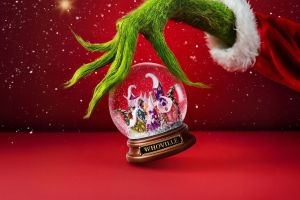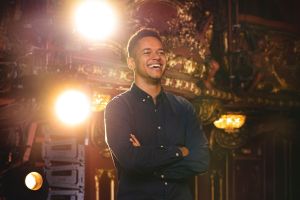The Christmas opera interview: Fabulous Fabiano!
American tenor Michael Fabiano talks frankly to WhatsOnStage about his career.
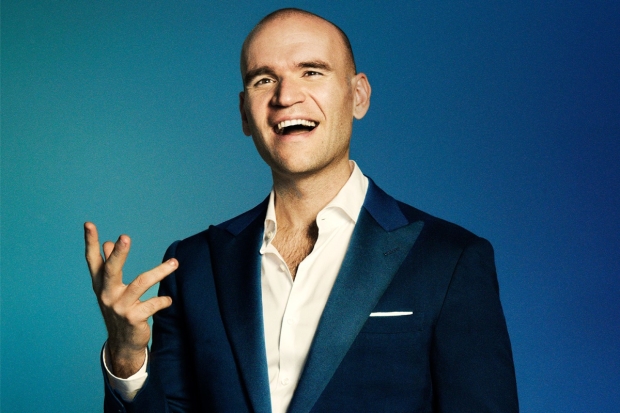
© Pari Dukovic
We last spoke in 2014 when the American tenor had just received the Beverly Sills Artist Award that recognises gifted singers between 25 and 40 who have sung featured solo roles at the Metropolitan Opera. Today, still only 33, Michael Fabiano continues to capitalise on those gifts in a career that’s seen him conquer the world of opera. He’s currently singing the Duke in Verdi’s Rigoletto for the Royal Opera, but it’s the company’s new La bohème that will be filling Britain’s TV screens on Christmas Day.
Fortified by Coke and strong coffee on the morning after Rigoletto‘s opening night, Fabiano’s passion for his craft spilled over. But he was clear where he wanted our conversation to begin. "Without my family, my fiancé and my team around me I wouldn’t have a career. There have been times when I’ve not had my greatest moments on stage and the public has felt it and I’ve felt it. Were it not for the people behind me – especially my amazing voice team of Neil Shicoff, Julia Faulkner and Laurent Philippe – I don’t know if I’d have gone back onstage.
"Careers don’t just go in some straight line; they’re made of great moments and less great moments. The key is that the median of where the peaks and the valleys are should trend up, not down.
"I’ve had failures along the way. The first major one, and a huge learning curve, was my debut at La Scala, Milan, when I was 23. It was too early; I was too young and I was not ready for the stress of a big debut, even though I was hungry for it. But the excitement and hunger to have a career at a young age is not sufficient. Careers need to age the way fine wines need to age, and when I made that debut I did not feel the humility of the moment because I was too green.
"I’m glad it happened though. Artists need to experience moments of duress and failure. We shouldn’t have it easy all the time. I have a team that is brutally honest with me and I wouldn’t have it any other way.
"My fiancé Brian is here with me and we’re spending Christmas together in London. He’s a furrier…" (And here, with the same passion he reserves for his music, Fabiano digresses into the ethics of choosing real animal fur over synthetic products. "The assumption is that animals are trapped and treated poorly, but that is not normally the case. And one of the chief ingredients of fake fur is petroleum, which is harmful to the earth as it will not biodegrade…")
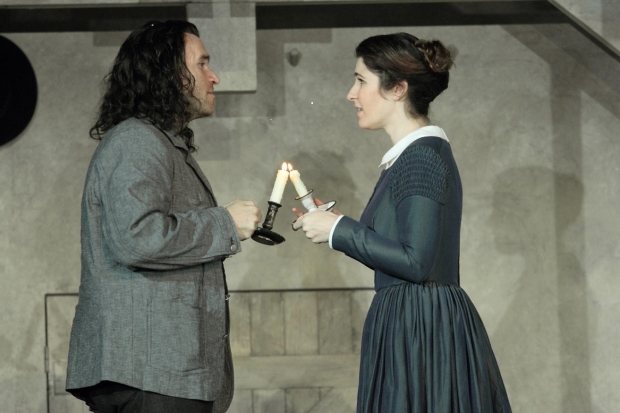
© Catherine Ashmore
We get back on topic. When Fabiano’s in a production that goes left-field, how does he tackle it? "When you work in concept productions it’s the responsibility of the artist to take on board what the director’s offering. We have to be creative and open-minded because with a closed mind one cannot create beautiful work. So I have to enter the room with a clear head and no notions of what ought to happen. I need to find out the concept, who I am, where I come from and why. Ultimately the public is not going to look at the director, they’re going to look at the artist. We’re the ones who are judged because we’re the ones who make it happen. And" [he fixes me with a look] "I think journalists should write more about artists and less about concepts.
"Open-mindedness allows an artist to be free when they create, but there’s a line. My line is: can it be justified? I think opera can be presented in any way as long as it’s intelligent and we can connect to it in some way. If those two standards are not met then we should not present it at all because that’s when they are hurting the public. They’re making them pay a lot of money to witness something that does not chime with the music and the libretto.
"When I did Carmen in France this summer I thought it was very smart and intelligent. The director Dmitri Tcherniakov had an idea that Don José was a man in a troubled relationship.
"In my opinion Carmen has never been about Carmen, it’s about Don José. That’s super-clear. And with Dmitri we definitely saw Don José go from being a nebulous man in a broken marriage to someone who fell for a woman, and fell and fell until he attempted to murder her."
I saw the production and confessed to Fabiano that I hadn’t enjoyed it. He understood that it was a divisive show, but for him it was exhilarating to be onstage the entire night and embody Don José as a pathetic man who implodes. "It was fun to do. Dmitri got me to be natural on stage and act with complete abandon, and I’m very grateful for that. We’re going to be doing it again soon – I can’t say where yet – but Dmitri want to re-rehearse it at length and rebuild it. He’s got the most incredible mind of all the directors I’ve worked with."
I venture that I’ve detected a change in Fabiano’s voice recently. Is that the case? "Last year I was singing Rigoletto in Paris when I started to feel a shift in my throat. I think the voice moves in six- or seven-year periods and last year I was feeling it hard-core. Navigating the waters when the voice is changing, and still maintaining decorum in front of the public, is tricky because you still have an obligation to deliver a top-quality performance. The Duke’s music is treacherous for a tenor – any kind of tenor – because the notes sit right in the cracks of the voice the whole night long.
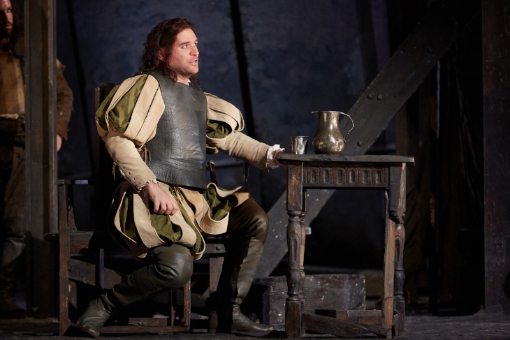
© Mark Douet
"Now that I’ve recalibrated how I sing, the role feels easier than it did a year and a half ago. It’s been a huge reorganisation of my voice and it’s still going on now. I study every day and I’ve had to rediscover parts of my instrument as if for the first time."
Which roles has he left behind as his voice has changed? "None. I’m not going to turn away any role. I went through some rocky waters when I was 26 and again at 31, and I’m sure I’ll do so again, who knows? But I’m a lyric tenor with heft. My voice can go high and I can sing a D flat at the end of the duet with Gilda.
"But I have to feel ready. A year and a half ago I was planning to sing Il trovatore but I’ve cancelled them all. I decided that I wanted to wait, only because I have an obligation to the public and not just to the music. I grapple with that conundrum all the time but it’s always the audience that comes first because they’re the ones who support us. So for now I’ll go on singing lyrical and lyrical-plus roles. I have Un ballo in maschera coming up, and Luisa Miller, and I will sing Don Carlo again, I’ll be singing a lot of Verdi, plus Werther is coming and so is Hoffmann [in Les Contes d’Hoffmann]. I’ll add and add and add rather than swing to a different Fach.
"Singing Rigoletto is like taking my daily vitamins. It’s not the most glorious opera for a tenor – it’s tough, it’s hard – but it keeps me lean and focused on good singing. In other roles, like in Carmen or Bohème, you can lean on pathos and character, whereas in this one I’m just a cad having a great time. But it requires precision of singing to survive the night."
Does a production like David McVicar‘s for the Royal Opera, which is dark and uncompromising, affect the way he shapes his vocal performance? "No. And by the way I’ve had my issues with this production. McVicar is one of the great directors of our time and when it was premiered in 2001 his Rigoletto was great. But in our era now of assault and harassment with respect to women I think it’s a little in our faces. When it comes to opera productions we can be a little more attentive to what exists in society, even when we create a production that’s set 500 years ago.
"There are instances when I was asked to do things with women on stage that were… strong. I resisted and asked to make the Duke a character who’s dark, of course, but also someone who questions his status. Does he really want to be this person at the top of the feudal system watching men assaulting women all the time? I think the answer to that question comes in his aria "Parmi veder le lagrime", when he sings about love. In McVicar’s production a reimagining of how the Duke conceives of his system would be great, and I try to do that in the performance – with some resistance from the staff!
"If you only play an angry, dark Duke it’s boring and that aria has no meaning. There has to be a point in the first act where he says ‘Why am I letting this happen? I am empty inside and I don’t have love.’ I want to show the public there’s a huge hole inside him that justifies what happens in Act Two. He’s not really an evil guy. He loves life and he happens to be in the cross-hairs of something much darker."
La bohème will be broadcast on BBC4 at 7 pm on Christmas Day. Michael Fabiano sings Rodolfo
Rigoletto returns to the Royal Opera House on 4 January for a further five performances with Fabiano as the Duke of Mantua.











